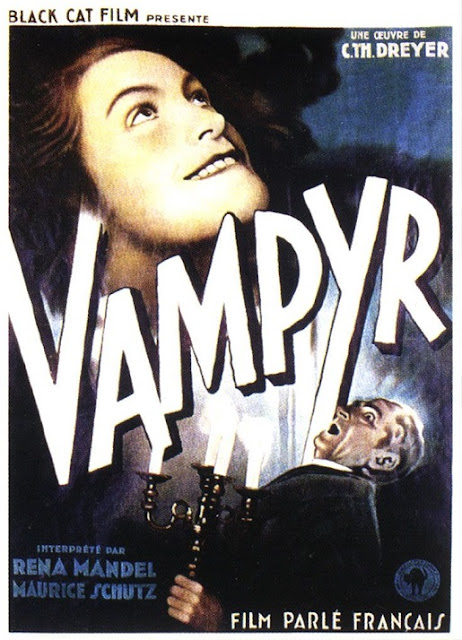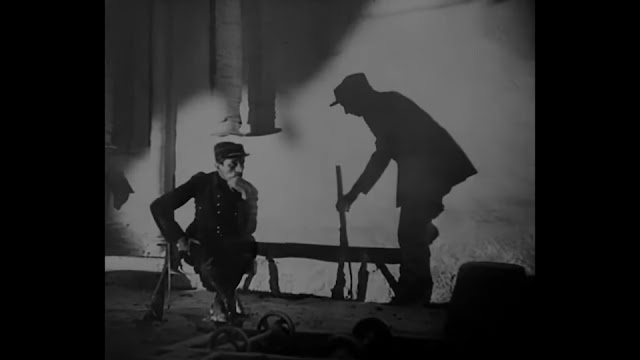Allan Grey is a young student with an interest in folklore and the occult. He arrives in a small town and is immediately beset with strange visions and prophetic dreams, leading him to a family estate. A young woman has been growing more and more ill, and her personality soon begins to change for the worse, leaving her concerned father to realise the truth only too late for himself. Now Allan must solve the mystery and stop the evil of a vampire before the girl's soul is stolen...
1922's Nosferatu is considered the seminal classic vampire film, as well as Germany's crowning achievement to the genre. More overlooked however is 1932's Vampyr, by Danish director Carl Theodor Dreyer. As with Nosferatu, which was successful until being nearly wiped from the face of the earth by a copyright lawsuit (grrrrr!), Vampyr was released to a lukewarm and outright negative reception. A lot of the critics who saw it just sound like old fuddy duddies! These kinds of people will criticise a horror film for just being escapist fun and not having deeper meaning, but if it does, they'll still find something to complain about.
The story here is an ambiguous one, with a focus on dreams. We're never quite sure what is really happening. The actual plot is pretty basic, and fairly standard stuff. It's enough of a foundation for the more surreal elements. The ending itself is open to interpretation. We know the gist of what happens, but the finer details are left to our imaginations.
Vampyr is an interesting mix of talkie and silent. There is spoken dialogue here, but the film relies heavily on intertitles, and quite lengthy ones too. There's very little dialogue, and much of what is spoken is fairly basic. The movie's atmosphere is a unique and silent one, almost like a painting in motion.
While not a modern day bloodbath, Vampyr is a quietly creepy movie, with subtle imagery to unsettle its audience. One setpiece is when Allan witnesses the journey of a man's shadow without him. The film's most memorable sequence is when he has a spooky dream where he witnesses himself in a coffin.
My problems with Vampyr are few. Firstly, I groaned at how it takes Allan the whole movie to read the special book on vampires. He doesn't even finish it in time! Instead some random groundskeeper does, and he's the one who actually solves the problem at hand, and stakes the vampire. Allan simply helps. It's a little hard to get involved in the action when all the hero does is assist from the sidelines.
The performances in Vampyr are good, fitting well with the vibe the movie's going for. Lead actor Nicolas de Gunzburg (credited as Julian West) wasn't an actor by trade, but a wealthy socialite! It was he who helped finance the movie. The fact that he bankrolled the production is impressive enough, but that he also gives a good performance is nothing short of a miracle. What a cool bloke! The pair who play the villains look distinctive. Not as vampires, but as people. My only complaint is that we don't see enough of the vampire herself (himself?).
The direction by Dreyer is fantastic! He presents many unique visuals. The lighting is great, with creative use of shadows, and highlighting smoke. Likewise, the effects are wonderful too, going hand in hand with the visuals to create a great atmosphere.
I didn't really appreciate however the moments when the movie actually sits us down and makes us read a book verbatim. I also didn't like about it though was how quiet the dialogue was. I was
often straining to hear it, glad a foreigner like me had the luxury of
subtitles.
Vampyr is a minor classic in the vampire genre, and a great film to watch for fans, and for anyone keen to study horror cinema. It's a fascinating and mature entry to the genre's most classical period...









No comments:
Post a Comment